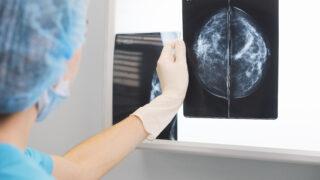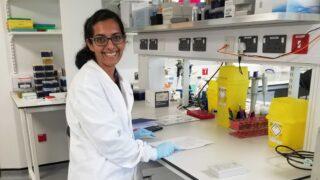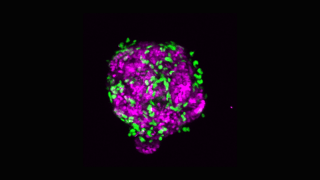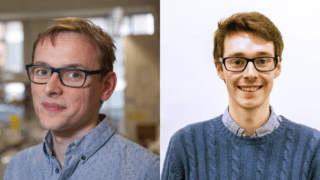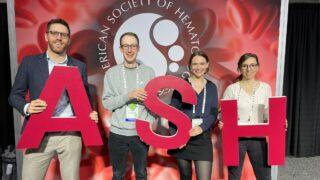Latest News
Search News
Categories
Archives
Immunotherapy significantly reduces recurrence in aggressive breast cancer
10th February 2022
An immunotherapy drug called ‘pembrolizumab’ has been shown to significantly reduce disease recurrence in patients with the most aggressive type of breast cancer, according to results from a phase III clinical trial led by Professor Peter Schmid from Queen Mary University of London and Barts Health NHS Trust.
Read moreBreaking down language barriers in cancer
4th February 2022
Vinaya Srirangam Nadhamuni, Clinical Research Fellow at Barts Cancer Institute, Queen Mary University of London, has been working on a project to make information about screening programmes more accessible to minority ethnic groups in the UK.
Read moreTargeting healthy cells changes invasive behaviour of pancreatic cancer
25th January 2022
Researchers from Barts Cancer Institute at Queen Mary University of London, led by Dr Angus Cameron, have found a way to modulate the invasive behaviour of pancreatic cancer by targeting a non-cancerous cell type found within pancreatic tumours. The findings, published in Cell Reports, provide valuable insights into the biology of pancreatic cancer progression, and could help to drive improvements in cancer treatment.
Read moreTurning back the molecular clock: Tracing cell lineage
6th January 2022
Researchers from Barts Cancer Institute at Queen Mary University of London, the Moffitt Cancer Center and the University of Southern California, have developed a new method that measures subtle changes to the genetic code of cells (called DNA methylation) to study the dynamics of what happens to cells within our bodies over time. The new method, published in Nature Biotechnology, provides a way to measure the birth and death of human cells, making it possible to trace cell lineage and evolution.
Read moreProfessor Nick Lemoine recognised in the New Year Honours List
5th January 2022
Congratulations to Professor Nick Lemoine, Director of Barts Cancer Institute at Queen Mary University of London, who has received a CBE for services to clinical research, particularly during COVID-19.
Read moreBarts Cancer Institute at ASH 2021
17th December 2021
In December each year, the American Society of Hematology (ASH) hosts its Annual Meeting and Exposition – the premier event in malignant and non-malignant haematology. The event represents an invaluable opportunity for researchers at Barts Cancer Institute, Queen Mary University of London to highlight their blood cancer research on an international stage.
Read more
